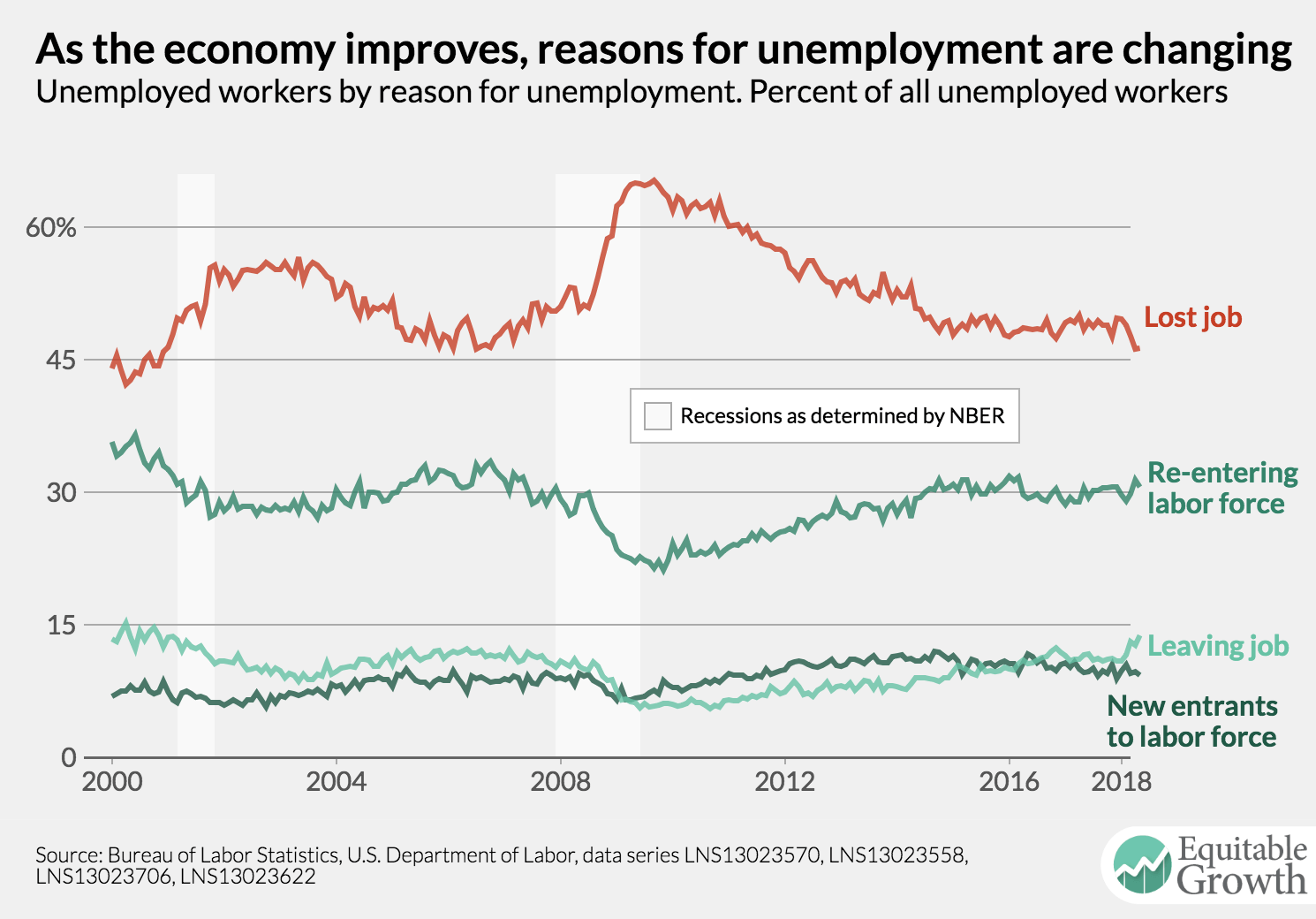Weekend reading: “barriers to economic equality” edition
This is a weekly post we publish on Fridays with links to articles that touch on economic inequality and growth. The first section is a round-up of what Equitable Growth published this week and the second is the work we’re highlighting from elsewhere. We won’t be the first to share these articles, but we hope by taking a look back at the whole week, we can put them in context.
Equitable Growth round-up
Equitable Growth policy analyst Bridget Ansel gathered some of Equitable Growth’s past work analyzing the cause of the motherhood pay gap to mark the day in the year (May 30) that mothers would have to work in the United States in order to earn what fathers did in 2017.
What exactly is going on in the U.S. labor market and why is the prime employment rate not fully stationary? Is the labor market not as tight as we are made to believe? Equitable Growth analyst Nick Bunker’s column looks at the state of U.S. wage growth, why the unemployment rate is below where it was before the Great Recession, and why nominal wage growth hasn’t picked up.
Equitable Growth released its monthly Jobs Day Graphs. The graphs display data including newly employed workers who were more likely to be previously unemployed and the employment rate of prime-age workers, who still trail their pre-recession peak.
Can union organization be pivotal in the attempts to tackle economic inequality? Equitable Growth policy analyst Kate Bahn’s piece in Slate argues the power of unionization in its effects to boost wage growth.
Links from around the web
It remains unclear whether the Tax Cuts and Jobs Act of 2017 will benefit employment, but what is clear is where the tax benefits are going. Reed College economist Kimberly Clausing finds that the bottom 99 percent of income earners will see an average tax cut of around 1 percent and their taxes will ultimately rise after the benefits expire in 8 years, while the top 1 percent will continue to experience a tax cut after benefits are set to expire. (econofact)
Do economist have a responsibility to address inequality? In an interview with Samantha Eyler-Driscoll, University of California, Berkeley economist Gabriel Zucman discusses the issues with excessive economic power and the issues of economists dismissing distributional economic policies. (promarket)
Do questions about previous salary history on job applications impede progress on closing the gender wage gap? Alexia Fernández Campbell lays out the argument for why this question prevents women from earning an income equal to their male counterparts and considers the recent success of states and cities that have barred the question from being asked. (vox)
Pregnancy often creates hurdles for women in the job market, in some cases even driving them out of a job. These negative implications to starting a family could be a reason why women are waiting to start families later in life or even consider putting off having a family altogether. Emily Peck discusses how starting a family can lead to punishment for women in the workplace. (huffingtonpost)
Could America’s own exceptionalism be the reason why the rich keep getting richer? Might it be that our national disinterest in bettering the U.S. economy be why Blacks and Hispanics are being disproportionately left behind? Eduardo Porter questions why the United States lags behind its industrialized counterparts in his final column. (NYT)
Friday figure

Figure is from “Equitable Growth’s Jobs Day Graphs: May 2018 Report Edition”
